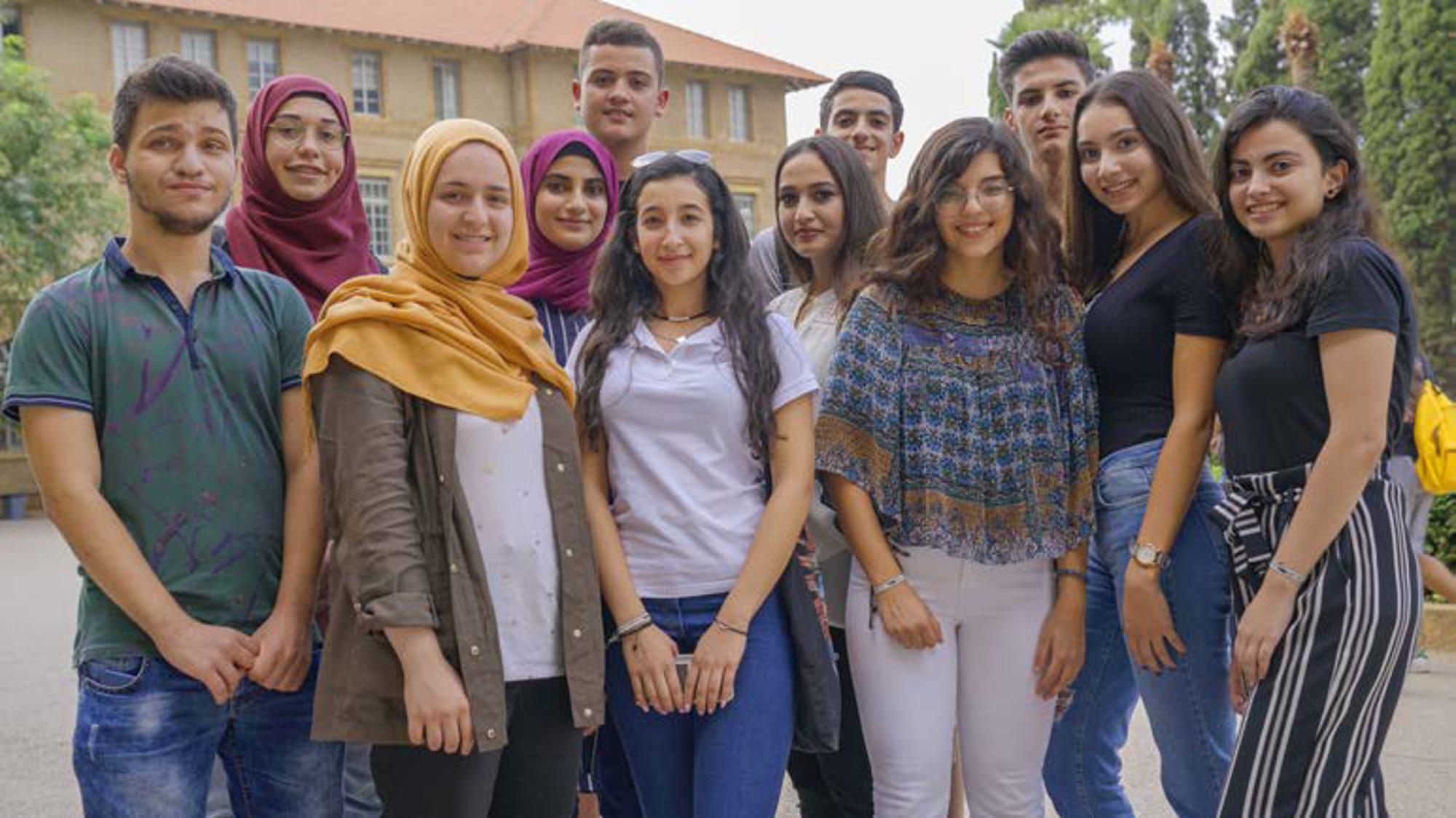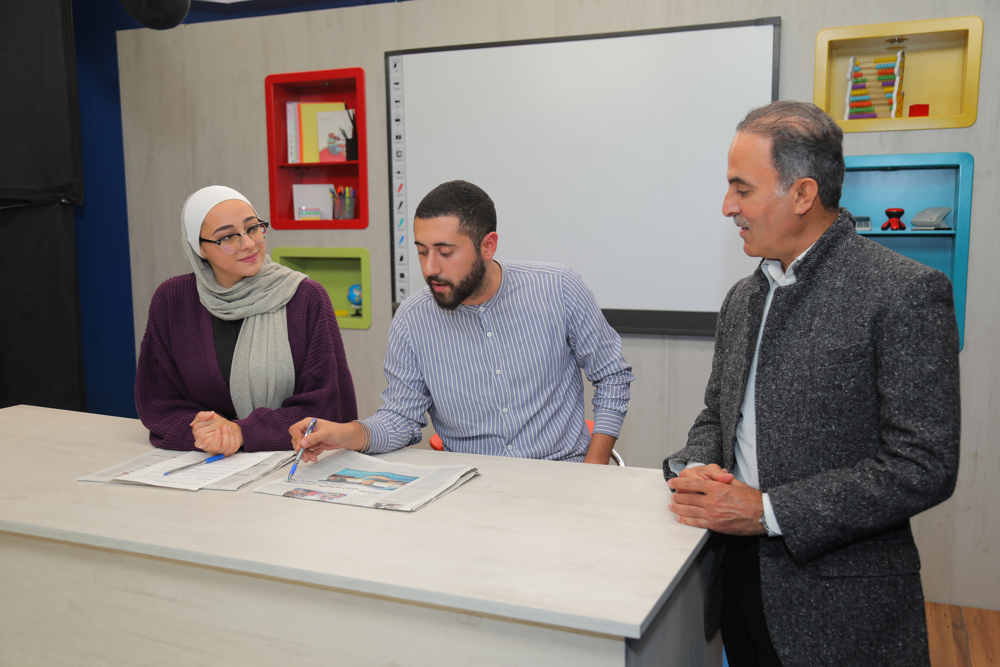Building education pathways
Abdul Aziz Al Ghurair's Refugee Education Fund provides secondary, vocational, and tertiary education to refugees and vulnerable youth in the Arab region

Abdul Aziz Al Ghurair's Refugee Education Fund provides secondary, vocational, and tertiary education to refugees and vulnerable youth in the Arab region

Emirati philanthropist and businessman Abdul Aziz Al Ghurair launched his Refugee Education Fund to provide secondary, vocational, and tertiary education to refugees and vulnerable youth.
In Jordan and Lebanon, the Fund supports high impact education programmes, and in the UAE, it benefits Arab children of families, who due to wars and disasters temporarily reside in the UAE.
Refugee children are five times more likely to go without an education than non-refugee children. This injustice is true at every stage, but it worsens at higher levels of education: just one percent of young refugee adults attend university, versus a third of all young adults globally.
One major reason is a lack of funding for programs that help refugees overcome barriers to education, such as tuition fees, living expenses, and the need to help support their families financially. Most refugee education is financed through emergency domestic and international budgets, but those funds fall far short of the need. Just two percent of international donors’ crisis funding goes to education, and much of that goes to primary education.
“Young people whose education has been interrupted by conflict deserve a chance to rebuild their lives and have a shot at a good future,” explained Abdul Aziz Al Ghurair in June 2018. With that vision, Al Ghurair created the US $32.6 million Abdul Aziz Al Ghurair Refugee Education Fund ("the Fund”) as a way to strategically invest his personal funds.
The Fund is managed by the Abdulla Al Ghurair Foundation for Education, of which he is the chairman, and disburses three-year grants to organizations that help refugees receive quality secondary, tertiary, and vocational educations.
It set out to reach 20,000 refugees and conflict-affected youth in Lebanon, Jordan, and the United Arab Emirates, to provide them with pathways to sustainable livelihoods.
Administered by the Abdulla Al Ghurair Foundation (AGF), the fund awards grants based on a competitive selection process to organisations working directly with refugee and conflict-affected children and youth.
Taking an impact-driven approach, the initiative values a partnership model, working closely to build capacities of partners based on emerging needs from the ground.
"Young people whose education has been interrupted by conflict deserve a chance to rebuild their lives and have a shot at a good future."
Abdul Aziz Al Ghurair, UAE philanthropist.

In September 2018, the Refugee Education Fund’s first round of grants provided USD 12.3 million to UNICEF Jordan, Luminus Education, Unite Lebanon Youth Project, and Emirates Red Crescent, as well as support for tracking and measuring their impact.
These four organizations will collectively serve over 6,500 refugees. UNICEF Jordan, for example, aims to enable more than 4,100 Palestinian and Syrian refugees, as well as at-risk Jordanian youth, to enroll and stay in school or continue on other learning pathways.
Luminus Education will support around 1,800 refugee youth in Jordan to access market- driven certificates and diplomas that lead to sustainable livelihoods.
In its next rounds of funding, the Refugee Education Fund will build on lessons from the first round, to enhance its impact. The Fund will prioritise programs that focus on identifying innovative solutions to long-standing challenges in refugee education and that can improve impact at scale at the secondary, vocational and tertiary levels of education.
This content was first published in 2020 by Project Inspired, a collection of video interviews and case studies drawn from conversations with some of the Arab region’s leading philanthropists and foundations. Project Inspired is supported by the Abdulla Al Ghurair Foundation and the Bill & Melinda Gates Foundation, and produced by knowledge partners The Bridgespan Group and Philanthropy Age.
It's a good idea to use a strong password that you're not using elsewhere.
Remember password? Login here
Our content is free but you need to subscribe to unlock full access to our site.
Already subscribed? Login here